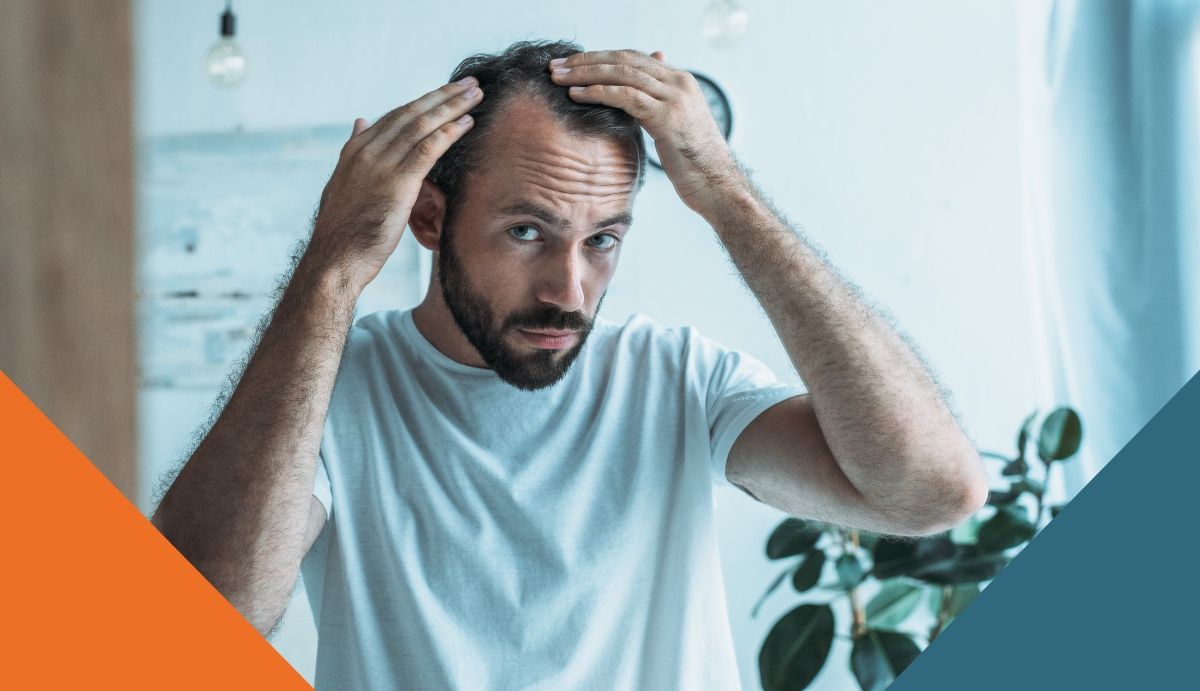
Hair loss has been a part of human culture since ancient times. Much like the stories of Gods and fantastic creatures, over time hair loss myths have grown.
For many years this was down to word-of-mouth, but myths have a life of their own thanks to the internet.
Some of these myths do more harm than good, as people will believe a story rather than seeing their GP, a trichologist or hair loss experts like ourselves, to get the right course of treatment. Here are a few of the common hair loss myths that we hear far too often.
1️⃣ Hair loss only happens as you get older
Hair loss isn’t just an age thing, it can happen at any time in your life. Depending on your genetic makeup, you can start to lose hair in your teens. It’s likely that your hair loss has nothing to do with your health or age but rather your genes.
Gradual hair thinning isn’t a guarantee of extensive hair loss, but it’s worth monitoring. Hair thinning is chronic and progressive so it’s best to get it treated sooner rather than later. For more information, read our blog on treatments for hair loss and how to prevent it.
2️⃣ Male pattern baldness is passed down from the father
It’s true that male pattern baldness is hereditary, but you inherit it from either your mother or father. As mentioned above, your genetics are the most common cause of hair loss and your genes are made up from both sides of your family.
If one side of your family has a line of males who’ve all showed signs of baldness, then it’s likely you’ll inherit that.
3️⃣ Bald guys have more testosterone
One common myth that never seems to die is that too much testosterone in men leads to baldness. The extra testosterone is said to lead to hair falling out, but this isn’t true at all. DHT (Dihydrotestosterone) causes male pattern hair loss to occur, and because it’s a byproduct of testosterone, the link between DHT and baldness is made.
While DHT levels are high during a period of male hair loss, it’s not entirely to blame for this. Experts have observed hair loss in cases involving high and low testosterone.
However, you can link Tissue DHT in the scalp to pattern hair loss. Tissue DHT is in fact elevated in the scalps of men going bald. A scalp that collects DHT will probably see hair loss follow.
Essentially, men have the same testosterone levels if they go bald or not. It’s down to the sensitivity of your hair follicles which influences the hormones in your body. This sensitivity is decided by your genetics.
4️⃣ Stress makes you go bald
Many people have linked stress with hair loss for a long time and it has some correlation but in a convoluted way. With an increased production of adrenaline, the body converts this into cholesterol which can raise the level of testosterone in the body. As testosterone affects sensitive follicles, hair loss and/or thinning can take place. High levels can also impact hair growth cycle, especially in women.
During a tough period, we also don’t look after ourselves well. For example, you may skip meals or eat processed food with little nutritional benefit. Your diet can affect hair growth, with improper nutrition being a big cause of hair loss in women. Stress also impacts your digestion and your absorption of nutrients which reduces their effectiveness.
However, the hair loss typically associated with stress – telogen effluvium (a resting time in hair growth) and alopecia areata (patchy hair loss) – are temporary issues. Atopical or oral solution can help to begin the recovery process.
5️⃣ Only men go bald
The long-standing myth that only men can have hereditary hair loss is false. NHS England estimates that 50% of women over the age of 65 experience female-pattern baldness but BBC News showed cases of women much younger than that.
Just like men, hair loss in women can come from either side of your family. Treatments such as Minoxidil can stop hair loss and encourage growth. There are hair systems for women available if other treatments cannot fix the loss of hair.
Don’t let false myths hold you back from receiving the treatment. Book a free consultation with our experts today who will discuss the next steps if indeed you are experiencing hair loss. Contact us today for more information
